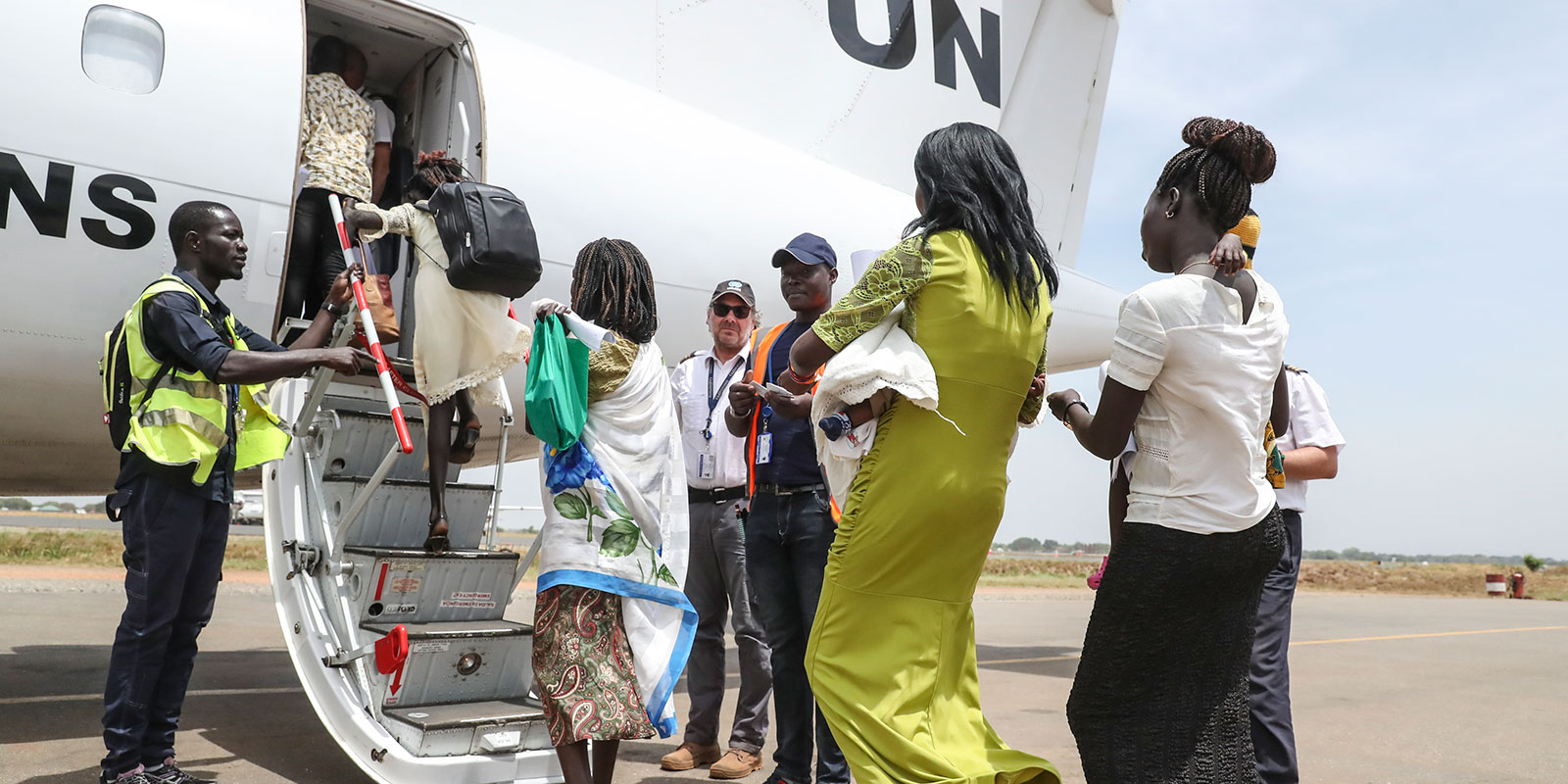The COVID-19 pandemic has devastated lives, communities and economies, impacting especially the poorest and most vulnerable. In many countries, the spread of COVID-19 has placed additional pressure on already vulnerable institutions, and has increased the risk of conflict. This happens in particular when trust is undermined; when measures to contain the virus or address the consequences are seen as inadequate, biased or disproportionate. Consequences can include exacerbating inequalities and grievances around access to healthcare – which could, in turn, undermine peacebuilding gains and heighten tensions over the mid to long term.
COVID-19 is a stark reminder of the continued need for peacebuilding and cooperation. Our response will determine how fast and how well the world recovers – Oscar Fernandez-Taranco @UNPeacebuilding #C19ConflictMonitor
Tweet
At the same time, traditional avenues to express grievances legitimately are narrowed or closed. At least 23 countries have postponed national elections or referenda, and almost twice as many have postponed subnational votes. Proceeding in an environment where some groups cannot vote safely is problematic, too. After a sharp decline in street protests because of lockdowns, we have seen an increase in peaceful protests – but in a number of countries, COVID-19 has been an excuse for state repression. The number of attacks against women, human rights defenders, humanitarians and peacebuilders continues to rise.
All these factors create opportunities for violent and criminal actors, while also changing the balance of power between state and non-state actors. We see violence spiking in Libya and Mozambique, and instability related to COVID-19 in the Democratic Republic of the Congo (DRC), Kenya and South Sudan.
This is happening at a time when conflict resolution at local, regional and international levels is challenging because of restrictions on travel and in-person meetings, and when we are deeply concerned about the deprioritisation of and a lack of funding for peacebuilding efforts. Yet, COVID-19 is a stark reminder of the continued need for peacebuilding and cooperation. Our response will determine how fast and how well the world recovers, and will also determine whether we are still able to achieve the Sustainable Development Goals (SDGs).
The social, economic and political disruption caused by COVID-19 potentially opens opportunities for peacebuilding in conflict-affected settings, particularly where social distancing and other restrictive measures to halt the spread of the disease – if applied in inclusive, transparent and temporary ways – prove to be successful. Responses must be centred on people and sensitive to conflict. They must build opportunities to increase social cohesion and trust in government, including through participatory dialogue mechanisms, especially at the community level. This also requires that women are consistently included in peace processes and political decision-making.
Inclusive dialogues on healthcare policies and response measures can transcend conflict lines and contribute to social cohesion, particularly when they bring different groups together around mitigating the impact of the disease. Emphasis on equitable access to healthcare creates opportunities to address grievances. Successful COVID-19 responses may also inform responses to other crises and shift priorities in more effective ways towards addressing other global risks to peace and security, such as climate change and inequality.
One of the key factors for success in responding to the pandemic is coherent, consistent, science-based messaging around measures to contain the spread of the virus. For this reason, we put crisis management and communication as one of the central tenets of the Peacebuilding Fund’s support to countries during the pandemic. This includes supporting governments’ crisis management capacities and institutions, including data management, communication and outreach to communities. For example, in Madagascar, a project is in the pipeline to strengthen the role of police forces in improving information about the pandemic and measures to prevent its spread. This will ensure proper coordination with other ministries, respect for human rights and greater transparency. The project will also look at additional investments with local authorities and communities to ensure clear and transparent communication, inclusive dialogue for responses and the prevention of potential conflict.
The Peacebuilding Fund has been supporting countries to ensure inclusive and equitable response and recovery, strengthening intercommunity social cohesion and border management, and countering hate speech and stigmatisation, and has also supported the UN Secretary-General’s call for a global ceasefire. This has meant introducing new programmes to deal with COVID-19 challenges. For example, the Peacebuilding Fund is mitigating the risk of escalating tensions in Haiti’s prisons, is supporting the government’s crisis management capacities in Mali, is addressing sexual and domestic gender-based violence in Guatemala and Colombia, and is providing remote learning tools and psychosocial support to refugees and host communities in Mauritania.
Now more than ever, investing in equitable access to social services, building inclusive and just institutions, establishing grievance mechanisms and fostering social cohesion are all investments in peace. The temptation of some countries to fend for their own citizens first and foremost is understandable. But the pandemic is a threat to all of humanity. It doesn’t recognise borders; instead, it requires international cooperation.
How we respond to the pandemic either has the potential to bring the world closer together or lead to greater mistrust. This is more urgent than ever: we need to forge a common and multilateralist vision to show solidarity, so that we may adequately support countries’ responses to the multidimensional aspects of the pandemic.
To quote from the Secretary-General’s recent Nelson Mandela annual lecture: “We belong to each other. We stand together, or we fall apart.”
Oscar Fernandez-Taranco is assistant secretary-general for peacebuilding support.

